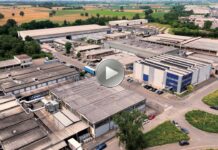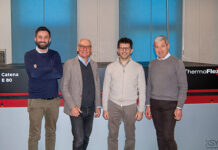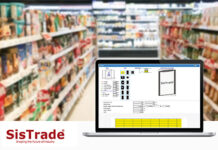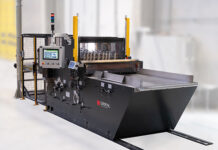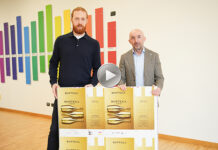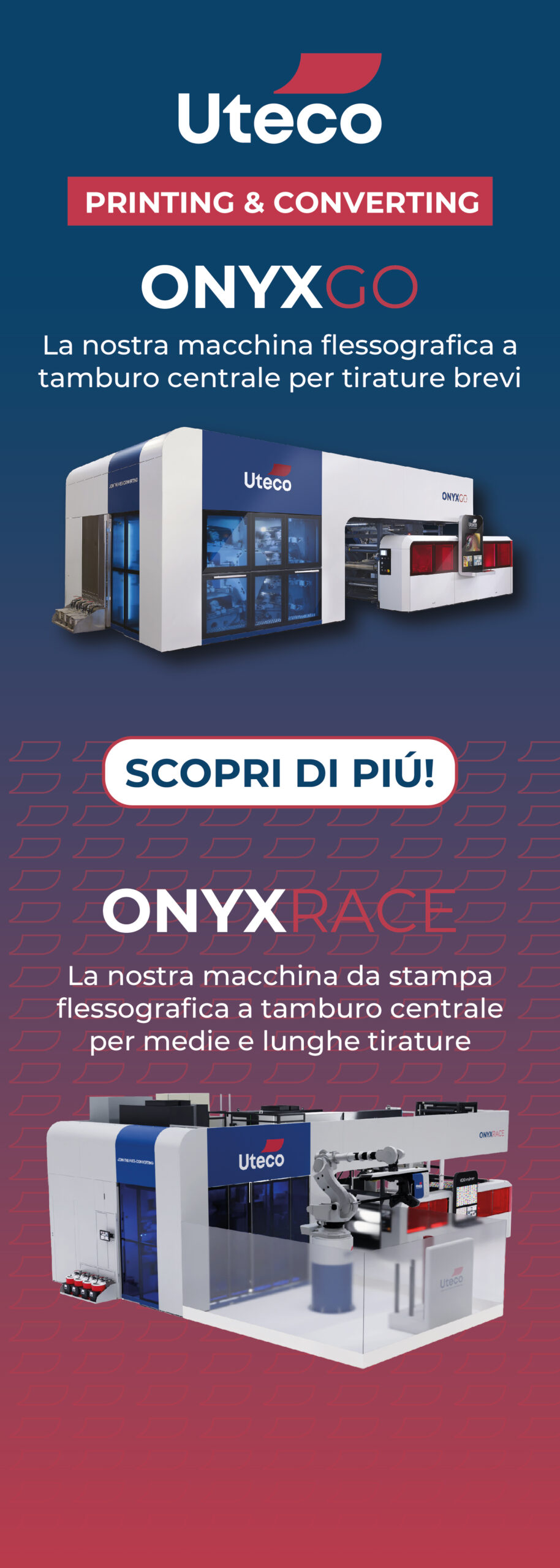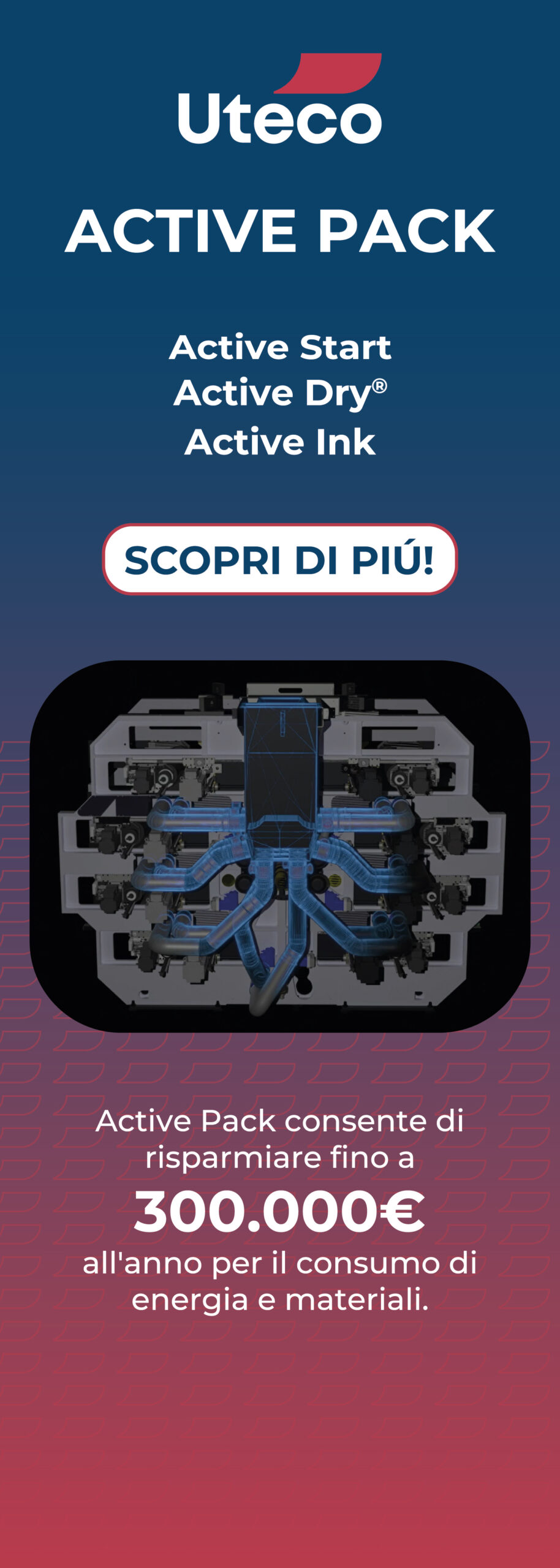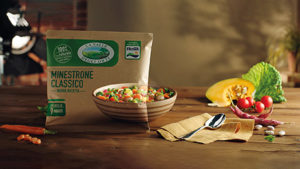 FRoSTA’s vegetable soup by Valle degli Orti is the first frozen product in a bag with innovative sustainable packaging with 75% less plastic and 20% CO2 reduction: it is flexo printed with solvent-based inks by Renato Lusa, located in Massa Lombarda (Ravenna) and is available on the shelves only in Italy
FRoSTA’s vegetable soup by Valle degli Orti is the first frozen product in a bag with innovative sustainable packaging with 75% less plastic and 20% CO2 reduction: it is flexo printed with solvent-based inks by Renato Lusa, located in Massa Lombarda (Ravenna) and is available on the shelves only in Italy
Frozen vegetables are mainly packaged in cardboard boxes or plastic bags, the latter being very popular with consumers because they allow you to optimize space when stored in home freezers. The challenge for FRoSTA was to develop packaging for frozen vegetable with a low CO2 footprint, high recyclability and unchanged product protection, considering the particular challenges of freezing. The new paper packaging can be placed in separate paper collection, increasing recyclability and ease of disposal for consumers.
FRoSTA and the #UnAltroModoPer campaign
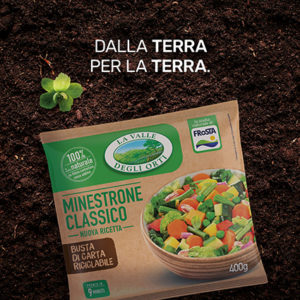 FRoSTA is a German frozen food company headquartered in Bremenhaven, in northwestern Germany, overlooking the North Sea. Founded in 1962, today it has 1,800 employees in 6 European countries with a turnover of 509 million euros. In 2003 the company revolutionized production by introducing the Purity Command, a precise and mandatory company choice based on the genuineness, transparency and traceability of products and more generally on the choice to produce in a conscious manner, reducing the environmental impact where possible. The group includes frozen products under the FRoSTA La Valle degli Orti brand. It is important to remember that all FRoSTA and La Valle Degli Orti brand products are strictly produced without flavor enhancers, without dyes and without flavorings.
FRoSTA is a German frozen food company headquartered in Bremenhaven, in northwestern Germany, overlooking the North Sea. Founded in 1962, today it has 1,800 employees in 6 European countries with a turnover of 509 million euros. In 2003 the company revolutionized production by introducing the Purity Command, a precise and mandatory company choice based on the genuineness, transparency and traceability of products and more generally on the choice to produce in a conscious manner, reducing the environmental impact where possible. The group includes frozen products under the FRoSTA La Valle degli Orti brand. It is important to remember that all FRoSTA and La Valle Degli Orti brand products are strictly produced without flavor enhancers, without dyes and without flavorings.
In its path of attention to the selection and quality of raw materials and the sustainability of production processes, FRoSTA wanted to take a step forward: to produce sustainable packaging and to make a further commitment to consumers and the environment. Gianluca Mastrocola, general manager of Frosta srl explains: “our production is sustainable because it uses ingredients and materials made in full respect of the environment, from the selection of raw materials to product packaging, up to the end of life; starting from these principles FRoSTA launched the #UnAltroModoPer campaign, to tell that there is another way to choose 100% natural food, using the resources of nature without altering its balance, and the eco-bag project is also born from this approach: FRoSTA has been a pioneer in the sustainable packaging sector for many years, so much so that in 2013 it eliminated aluminum from packaging. With the new paper packaging, FRoSTA proceeds along its path, convinced that there is an ethical, responsible and sustainable way of doing business “.
FRoSTA wants to reduce the use of plastic in the food industry: goal achieved with the eco-bag
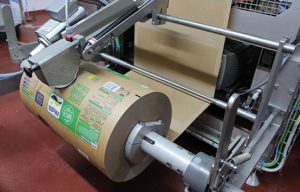 The reduction of the environmental impact of the new packaging is significant: thanks to the eco-bag it is estimated a decrease of more than 75% of plastic and about 20% of CO2 produced compared to previous packaging. The environmental impact was assessed by measuring the CO2 footprint of Classic Vegetable Soup by Valle degli Orti and taking into account all the stages of the production process until it reaches the consumers’ homes. The result of the study showed that the use of paper as the main component of a package has advantages in terms of CO2 emissions compared to the previous all-plastic PET/PE packaging. An essential feature of FRoSTA paper packaging is precisely the lack, during the processing and finishing of the package, of the bleaching phase, which avoids the use of many chemicals.
The reduction of the environmental impact of the new packaging is significant: thanks to the eco-bag it is estimated a decrease of more than 75% of plastic and about 20% of CO2 produced compared to previous packaging. The environmental impact was assessed by measuring the CO2 footprint of Classic Vegetable Soup by Valle degli Orti and taking into account all the stages of the production process until it reaches the consumers’ homes. The result of the study showed that the use of paper as the main component of a package has advantages in terms of CO2 emissions compared to the previous all-plastic PET/PE packaging. An essential feature of FRoSTA paper packaging is precisely the lack, during the processing and finishing of the package, of the bleaching phase, which avoids the use of many chemicals.
The new bag is made up of cellulose and a minimal amount of PE. The paper is raw, free of the chemicals usually used for the treatment of packaging and minimizes the environmental impact of the production processes. A thin plastic film is inserted on the inner layer to protect the product: this is a minimum percentage, which allows it to remain within the parameters for disposal in the paper and which is separated during the recycling phase. The recyclability of this packaging is attested by analyzes carried out in accordance with the evaluation system of the recyclability of mainly cellulosic materials and products (paper and cardboard) published by ATICELCA (Association of Italian Paper Technicians).





